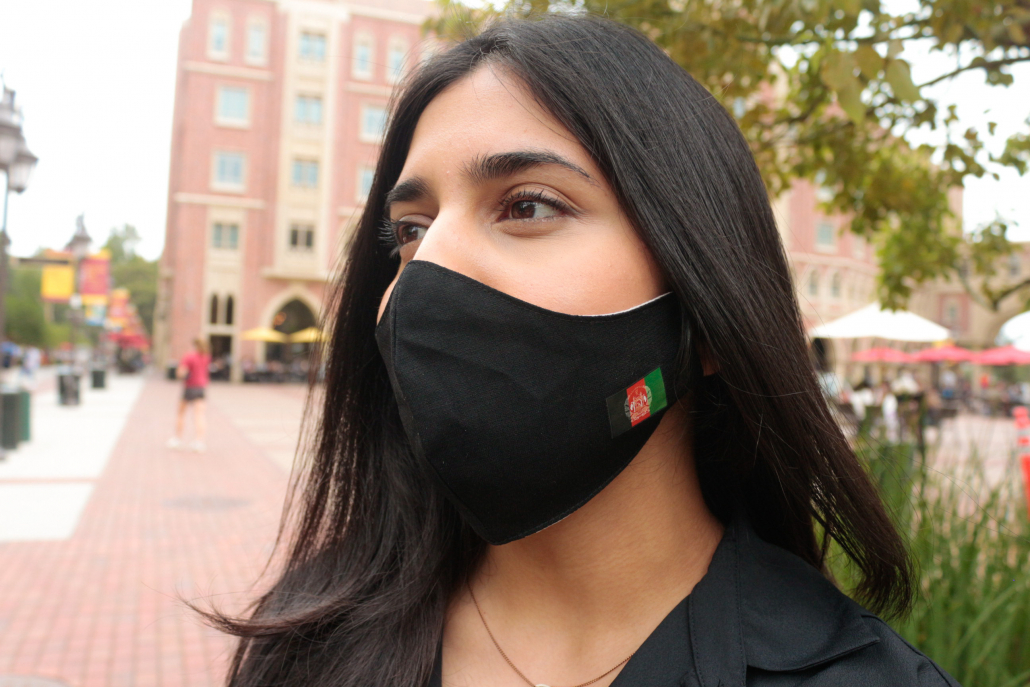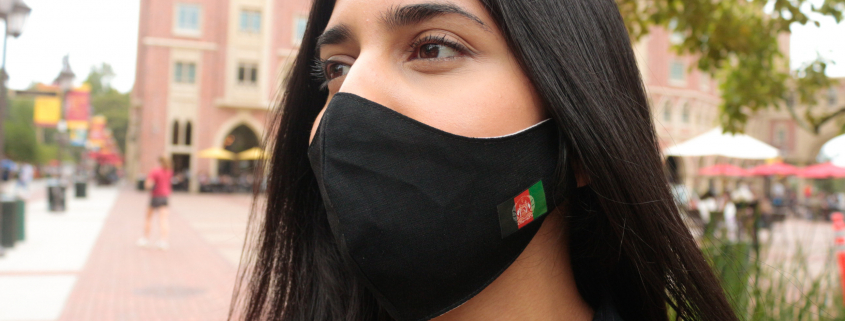Afghan students worry for family safety

The day Afghanistan’s government fell to the Taliban, Nadira Noor was supposed to be on a plane to Kabul to celebrate her sister’s wedding.
“We woke up and heard the news, and I got an email from the airline saying that all the flights were cancelled,” said Noor, a senior majoring in applied data science and business administration.
The same week, the Taliban surrounded the exits in her sister’s apartment complex, and the people living in the building haven’t been able to leave since, Noor said. In contact with family members in the province of Kandahar — who have described dire conditions on the ground — Noor said they are experiencing food shortages and increased risk of coronavirus exposure.
“There have been dead bodies on the street for a week,” Noor said. “People are too scared to go outside to pick up their loved ones and have funerals for their loved ones who are still laying on the street.”
On Aug. 15, the Taliban seized Afghanistan’s capital city of Kabul and President Ashraf Ghani fled the country. The collapse occurred weeks before President Joe Biden’s scheduled date for United States forces to withdraw from the country, marking a violent end to America’s longest war. Since Aug. 14, the United States evacuated nearly 80,000 people from the country, but there are still thousands of other Afghans fighting to escape. On Tuesday, the Taliban announced they’re no longer allowing Afghan nationals going to the Kabul airport to leave the country, creating even more panic among citizens attempting to leave.
In interviews with the Daily Trojan, members of the USC Afghan Student Association shared that they were particularly concerned about what the government’s fall would mean for ethno-religious minorities and internally displaced people in Afghanistan.
Kawsar Nasir, a graduate student studying public health, said her family faces danger due to being Shia muslims. Her family wants to commemorate the holy month of Muharram — a holiday primarily observed by Shia Muslims — but they’re staying home, since, in the past, the Taliban has attacked and massacred Shia Muslims while they gathered to pray. According to the Guardian, in 2002, the United Nations discovered three mass graves filled with Taliban victims — many of whom were believed to be Hazara, a Persian-speaking ethnic minority group who are also primarily Shia Muslims. More recently, in 2018, Aljazeera reported that Taliban forces attacked primarily Hazara villages in Ghanzi, killing at least 63 civilians and displacing thousands of others.
Sumaya Hussaini, another member of USC AfgSA, also reflected on the significance of the Taliban’s takeover during Muharram.
“It’s just really painful seeing that [Muharram is] overlapping during this time because I think it highlights who is most at risk,” said Hussaini, a senior majoring in political science and public diplomacy. “All Afghans are at risk right now, but I also think it’s important to recognize how women are uniquely at risk, how Hazaras or other Shia people are at risk.”
Hussaini’s grandparents, cousins, aunts and uncles in Afghanistan have told her that the Taliban have continued to knock on doors, confiscate belongings and count the number of women and children in each family.
Since the Afghan government collapsed, Hussaini’s family has tried to go to the Hamid Karzai airport every day, but they’ve either been stopped by security officers or arrived to find all the flights canceled.
“Right now, [my family’s] trying to evacuate, but the problem is a lot of them don’t have visas or passports, so it’s almost impossible,” Hussaini said. “I check in on them every day, they are OK. They’re just really scared … We just have to wait and see what happens.”
In Kansas, Hussaini’s parents recently took in families who successfully made it out of Afghanistan. Hussaini said she’s worried about those families and all of the other refugees arriving to the US., as she feels they are likely to face hardships in their new residence.
“People think ‘Taliban’ and equate it with Islam,” Hussaini said. “We saw in America that, after 9/11 happened and the U.S. invaded Afghanistan, there was a big rise in Islamophobia and xenophobia. I’m worried now that the U.S. has pulled out and the Taliban [has] taken over that we’ll see a similar trend.”
Dr. Azizullah Amir, an alumnus who runs the Moraa Educational Complex — a school for women and girls in Kabul — said the Taliban recently instructed all universities in the area to close. Before the Afghan government collapsed, dozens of girls and women attended Moraa’s preschool, primary school, secondary school and university. Of those students, at least 130 were mothers who would have otherwise been unable to receive an education.
Amir said he’s “very much” afraid of being targeted by the Taliban because of his advocacy for Afghan women and hopes USC will help him contact the State Department for a Special Immigrant Visa to flee the country with his children as soon as possible.
In an email to the Daily Trojan, Rossier School of Education Dean Pedro A. Noguera wrote, “We have been in touch with Dr. Amir and we are trying to do everything possible to assist him in his efforts to leave Afghanistan and secure employment in the U.S. I have nothing definitive to report other than we are trying to help.”
In early August, the USC Afghan Student Association began working with the non-profit Mothers of Afghanistan to raise money for food and shelter for internally displaced families and widows in Kabul and Jalalabad. The association also plans to protest for increased Special Immigrant Visas for Afghan refugees Saturday at the U.S. Federal Building.
“This is an American issue,” Hussaini said. “I think when people hear what’s going on in Afghanistan, they’re like, ‘That’s across the world, I don’t know anyone from there, I don’t even know what that country looks like, whatever,’ but America’s actions and foreign policy have directly contributed to the current state of those people.”
Moving forward, Hussaini and Nasir look to urge USC to raise awareness and support their fundraising efforts for Afghan people in need.
“We have approximately 600 refugees coming into [Los Angeles/Orange County]. That’s a lot,” said Nasir. “This is something that the State Department probably won’t be able to accommodate … So that’s where we come in.”
Correction: A previous version of this article included sensitive information that has since been removed. It also misstated Sumaya Hussaini’s name as Sumaya Nasmin. The Daily Trojan regrets these errors.

